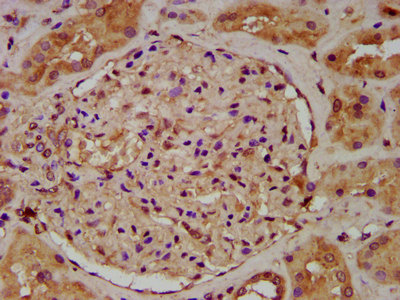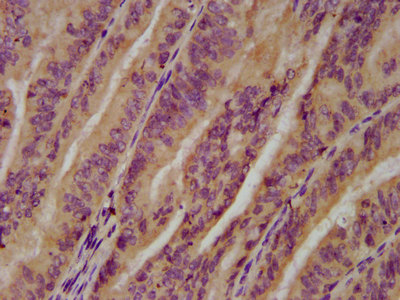Full Product Name
Rabbit anti-Homo sapiens (Human) UGT1A6 Polyclonal antibody
Alternative Names
UGT1A6; GNT1; UGT1; UDP-glucuronosyltransferase 1-6; UDPGT 1-6; UGT1*6; UGT1-06; UGT1.6; Phenol-metabolizing UDP-glucuronosyltransferase; UDP-glucuronosyltransferase 1-F; UGT-1F; UGT1F; UDP-glucuronosyltransferase 1A6
Immunogen
Recombinant Human UDP-glucuronosyltransferase 1-6 protein (278-410AA)
Immunogen Species
Homo sapiens (Human)
Conjugate
Non-conjugated
The UGT1A6 Antibody (Product code: CSB-PA025579LA01HU) is Non-conjugated. For UGT1A6 Antibody with conjugates, please check the following table.
Available Conjugates
| Conjugate |
Product Code |
Product Name |
Application |
| HRP |
CSB-PA025579LB01HU |
UGT1A6 Antibody, HRP conjugated |
ELISA |
| FITC |
CSB-PA025579LC01HU |
UGT1A6 Antibody, FITC conjugated |
|
| Biotin |
CSB-PA025579LD01HU |
UGT1A6 Antibody, Biotin conjugated |
ELISA |
Purification Method
>95%, Protein G purified
Concentration
It differs from different batches. Please contact us to confirm it.
Buffer
Preservative: 0.03% Proclin 300
Constituents: 50% Glycerol, 0.01M PBS, pH 7.4
Tested Applications
ELISA, IHC
Recommended Dilution
| Application |
Recommended Dilution |
| IHC |
1:200-1:500 |
Storage
Upon receipt, store at -20°C or -80°C. Avoid repeated freeze.
Lead Time
Basically, we can dispatch the products out in 1-3 working days after receiving your orders. Delivery time maybe differs from different purchasing way or location, please kindly consult your local distributors for specific delivery time.
Usage
For Research Use Only. Not for use in diagnostic or therapeutic procedures.








